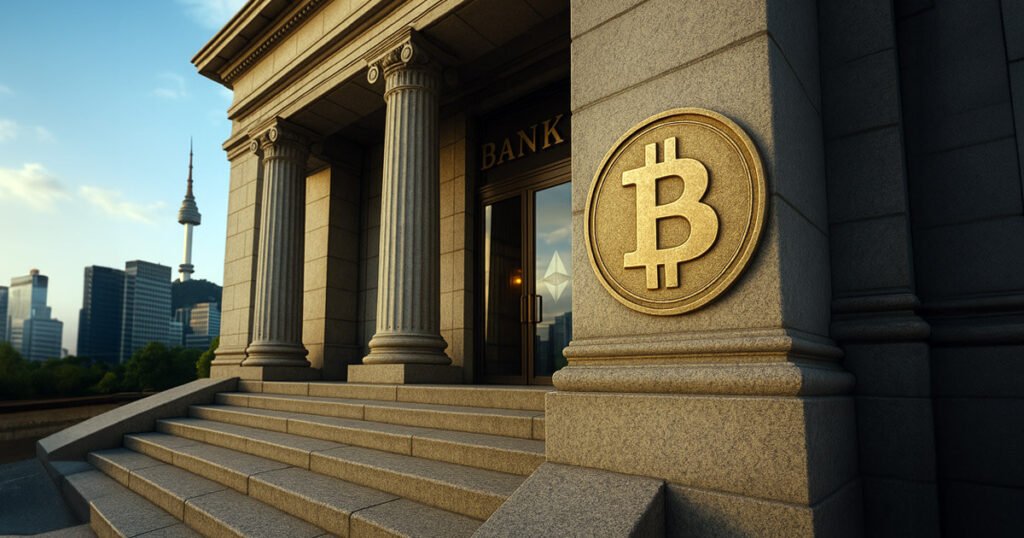South Korean Banks Advocate for Crypto Policy Overhaul
In a significant move to reshape the crypto landscape in South Korea, major banks are rallying for a shift in regulatory policy concerning their relationships with cryptocurrency exchanges. The initiative, described in a report published by local outlet MT on April 9, emerged from a meeting convened by the Korea Federation of Banks. The discussion brought together influential figures from the banking sector, including Woori Bank CEO Jeong Jin-wan, who articulated the pressing need for a change in the current one-bank-per-exchange framework. This existing model has been critiqued for its restrictive nature, limiting both consumer choice and the overall competitiveness of the financial environment in South Korea’s burgeoning crypto market.
Critique of the Current Framework
Under the established regulations, each cryptocurrency exchange is permitted to partner with only one banking institution. This policy, rooted in anti-money laundering measures enforced since 2018, mandates that users conduct real-name verification with the bank associated with their selected exchange. While the intention behind this regulation was to enhance security and transparency, banking executives believe that it has inadvertently created a brittle financial ecosystem. Jeong Jin-wan highlighted that this rigid structure not only imposes undue pressure on financial systems but also restricts user access, thereby stifacing innovation across the banking and crypto sectors. As South Korea aims to solidify its standing in the global crypto arena, stakeholders recognize that adaptation is critical to meet evolving market demands.
Need for Increased Flexibility
The discussions held by South Korea’s top bankers reveal a consensus that the current model hampers flexibility for both consumers and exchanges. Executives argue that allowing multiple banks to collaborate with a single exchange would enhance resilience and user experience, particularly for retail and institutional clients who seek a diverse range of financial services. By diversifying banking partnerships, exchanges could provide improved services and address customer concerns more effectively. The rigidity of the one-to-one rule has led to a reliance on singular banking relationships, significantly heightening operational risks and limiting options for users. To promote a healthier competitive environment, bank representatives are advocating for policy changes that would allow more cooperative arrangements between exchanges and multiple banking institutions.
Addressing Systemic Risks
Amid rising challenges related to systemic risks in finance, the call for policy reform has gained urgency. A recent warning by a South Korean lawmaker illuminated potential vulnerabilities associated with exclusive banking relationships, particularly referencing Upbit—the nation’s largest crypto exchange. It was noted that a staggering 20% of K Bank’s deposits are derived from Upbit, establishing a precarious dependency. Should issues arise within the exchange, the resulting instability could trigger a liquidity crisis at the bank, posing significant risks to both banking and crypto sectors. This situation accentuates the inherent dangers of the current regulatory framework and highlights the urgency for comprehensive reviews aimed at strengthening the financial system’s resilience.
Potential Benefits of Revised Policy
Should the government respond positively to the bankers’ plea and amend the policy, the benefits could extend across the spectrum of cryptocurrency operations in South Korea. A regulatory shift allowing for a wider array of financial partnerships could enhance service delivery for exchanges and their users. Improved risk management strategies would likely emerge as exchanges diversify their banking affiliations, allowing them to better navigate operational challenges. Furthermore, the increased competition among banks to serve crypto platforms could result in innovative offerings and improved investment opportunities for both retail and institutional clientele.
Conclusion: The Future of South Korea’s Crypto Market
As the South Korean banking sector boldly pushes for a reconsideration of existing cryptocurrency policies, the implications of such changes could be profound. With the urgency for regulatory adaptation more apparent than ever, stakeholders argue that a revised approach could foster innovation, bolster competition, and mitigate systemic risks. The quest for a flexible policy framework that accommodates multiple banking partnerships could revolutionize the relationship between financial institutions and the crypto world, positioning South Korea as a leader in the global digital asset landscape. By embracing change, South Korea can not only enhance the security and efficacy of its financial systems but also pave the way for a thriving and dynamic cryptocurrency market.


